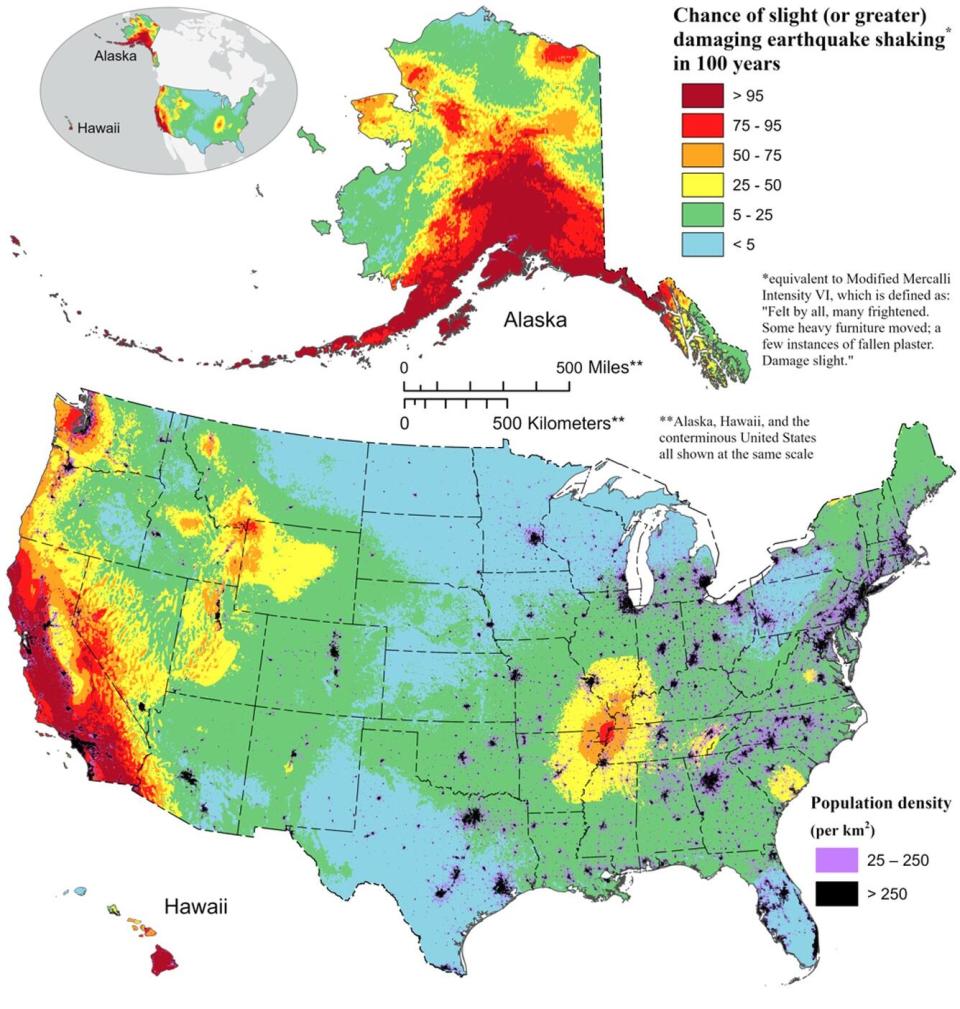4.0 earthquake off the coast of Florida: How to stay safe when, and if, it happens again
A rare magnitude 4.0 shook some Floridians on the East Coast of the state Wednesday night.
The earthquake occurred in the Atlantic Ocean, about 100 miles east of Cape Canaveral around about 10:48 p.m, at a shallow depth of about 6 miles, according to the U.S. Geological Survey.
Residents from Merritt Island to Palm Bay reported feeling the moderate quake since it took place close to the surface of the ocean floor. Posts flooded social media groups, asking about what they just felt.
Some confused the earthquake with NASA's PACE spacecraft launch from Cape Canaveral, which did produce a sonic boom. The spacecraft created a sonic boom at 1:47 a.m., according to local law enforcement.
Does Florida get earthquakes?
Yes, but they're very rare.
Florida ties North Dakota as the state with the fewest earthquakes per year. Between 1975 and 1995, the state was one of only four that recorded no earthquakes at all. (The others were Iowa, Wisconsin and North Dakota.)
Florida is not located near any tectonic plate boundaries, as the closest fault line to Florida runs through the Caribbean Sea, just north of Puerto Rico and the Dominican Republic and south of Cuba toward Guatemala.
But when they do happen, it's typically not strong enough to affect us, even if they're not close by.
How likely are earthquakes in Florida?

There have been more than 20 earthquakes reported in Florida since 1992, immediately north of the state's border in Alabama, or off the coast in the Gulf of Mexico and Atlantic Ocean, according to the U.S. Geological Survey.
“We have had earthquakes in Florida — and we could have one today — but it’s not as likely as other places,” said Doug Smith, professor of geology and longtime director of the University of Florida’s seismic network in 2000.
But's it's not zero, as the USGS' new National Seismic Hazard Model map (above) shows.
In the update, based on a "massive collaborative effort" from more than 50 scientists and engineers and federal, state and local governments, most of Florida has a 5% chance or lower of experiencing a damaging earthquake in the next 100 years. But the Panhandle and an area of North Florida down to a line stretching from Jacksonville southwest to south of Cape Coral has a 5-25% chance, the agency said.
When an earthquake happens in Florida, how can I stay safe?
For residents who experienced the shaking and want to be a little bit more prepared next time, here's what Ready.gov recommends to do now:
Practice "Drop, Cover, and Hold On" with loved ones.
Create a family emergency communications plan that has an out-of-state contact. Plan where to meet if you get separated.
Secure heavy items in your home like bookcases, refrigerators, water heaters, televisions and objects that hang on walls. Store heavy and breakable objects on low shelves.
For those in the Panhandle, consider obtaining an earthquake insurance policy. A standard homeowner’s insurance policy does not cover earthquake damage.
When an earthquake is currently happening, officials say that:
If you are in a car, pull over and stop. Set your parking brake.
If you are in bed, turn face down and cover your head and neck with a pillow.
If you are outdoors, stay outdoors away from buildings.
If you are inside, stay and do not run outside and avoid doorways.
Sinkholes to storms: What other natural disasters occur in Florida?

Here's what other natural disasters to watch out for in the Sunshine State and their respective guides:
Contributing: J.D. Gallop, FLORIDA TODAY, and C.A. Bridges, USA TODAY Network-Florida
This article originally appeared on Fort Myers News-Press: Earthquake safety tips: Does Florida get them? Yes, but they're rare

